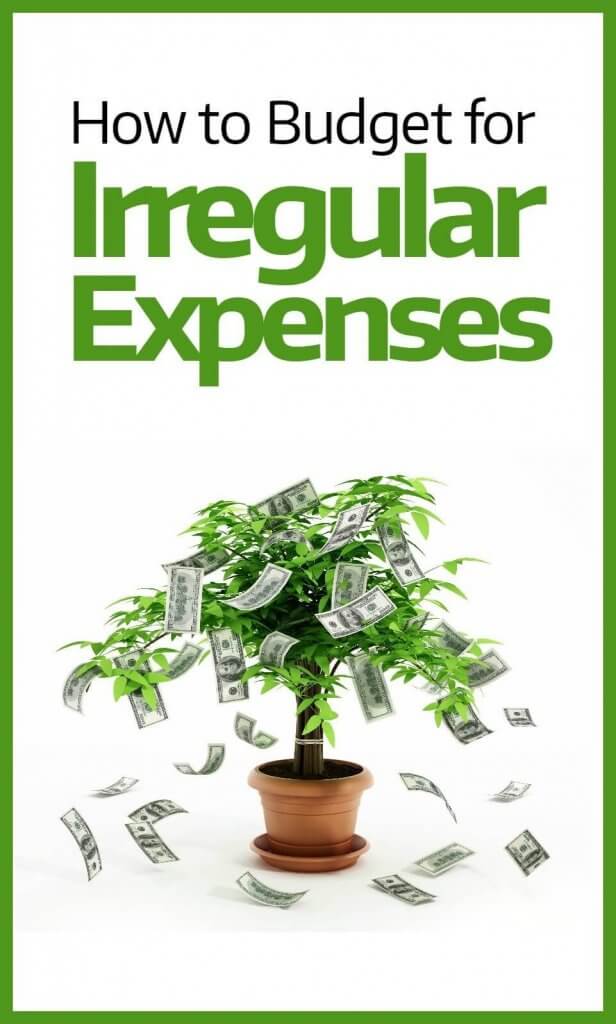Contents

Speaking of my own budget I pay my rent monthly, my utilities monthly and my cell phone bill monthly.
I also get paid monthly and have a pretty good handle on how much I spend each month on commuting, groceries and so on.
With such regular expenses budgeting is reasonably simple.
But what about those expenses that just crop up occasionally?
What about, for example, that magazine subscription that arises once every 3 months?
Or what about Christmas, your summer vacation or the kids birthdays? Or my car insurance which I pay once a year?
These things are rather more difficult to factor into a budget, and can commonly blow your spending plan out of the water.
After all, emergency funds are for – well – emergencies. You wouldn’t be wise to spend your emergency funds on Christmas gifts for example.
Speaking to a friend recently about their newly-minted budget they explained frustration over such expenses.
Having tried a number of different tactics over the last few years I thought it might be beneficial to discuss how I budget for these irregular expenses these days…
Plan Ahead
The first step in budgeting for irregular expenses is getting a hold on what these expenses might entail. Grab a pen and paper, and ideally some old bank statements, and start looking for those “surprise” expenses.
Note down, for example, the following:
- Bills coming less regularly than once a month
- Birthdays and other major annual events
- Christmas
- Car maintenance costs
- Insurance
Set A Goal
Once you’ve got a list of all these regular expenses the next step is to give them a value. Try to guestimate how much each of these will cost you when they finally come around.
And don’t be too tight; bills can go up as well as down so you’re better to over estimate than under estimate. That way, the worst case scenario is you’ll have a little extra money available that month.
Set A Time Limit
Next, work out the dates of these events, and how long you have until these events arise. If you’re planning your budget in January, for example, and considering the cost of Christmas, we know it’ll arise in November or December (depending on when you do you shopping) so you’ve got perhaps 10 to 11 months to save that cash.
Do The Division
The next part is easy; divide up each expense. Work out the total required, divided by the number of months (or weeks) till that event. That tells you how much you need to be saving in order to hit that savings goal in time.
Start Budgeting
Lastly, factor each of these new costs into your budget, carefully putting money aside for each one whenever you get paid. Consider keeping a record of your plan so you can be certain in a few months time exactly how much you’re saving and why.
Some people find it beneficial to set up a separate bank account to save this money in, so that it doesn’t get “lost” among your savings or everyday living expenses.
Alternatively use a free tool like Personal Capital to track your budget throughout the year. Aim to “ring fence” this money so it’s protected from spending until those irregular expenses you’ve predicted finally arise.
Re-Budget
Lastly, once you hit each of these spending periods, re-evaluate your budget. Many of them won’t occur again for another 12 months so you can save a smaller amount thereafter and still hit your goal thanks to the longer time period. Also consider whether the sum of money you predicted you’d need was accurate and adjust if necessary.
Conclusion
As you can see, budgeting for irregular expenses doesn’t necessarily need to be uncomfortable or difficult. Investing a few hours into the creation of a workable plan can make the rest of your year go a whole lot easier.
In addition, there’s nothing nicer than getting towards Christmas, or your wedding anniversary, and knowing confidently that you’ve already set aside more than enough money to over such expenses without concern.
Trust me – Christmas is a whole lot more fun with guilt-free spending and a ready bank of cash. It’s also oddly satisfying to arrive at the New Year without having clocked up any new debt while paying for Christmas.











Add comment